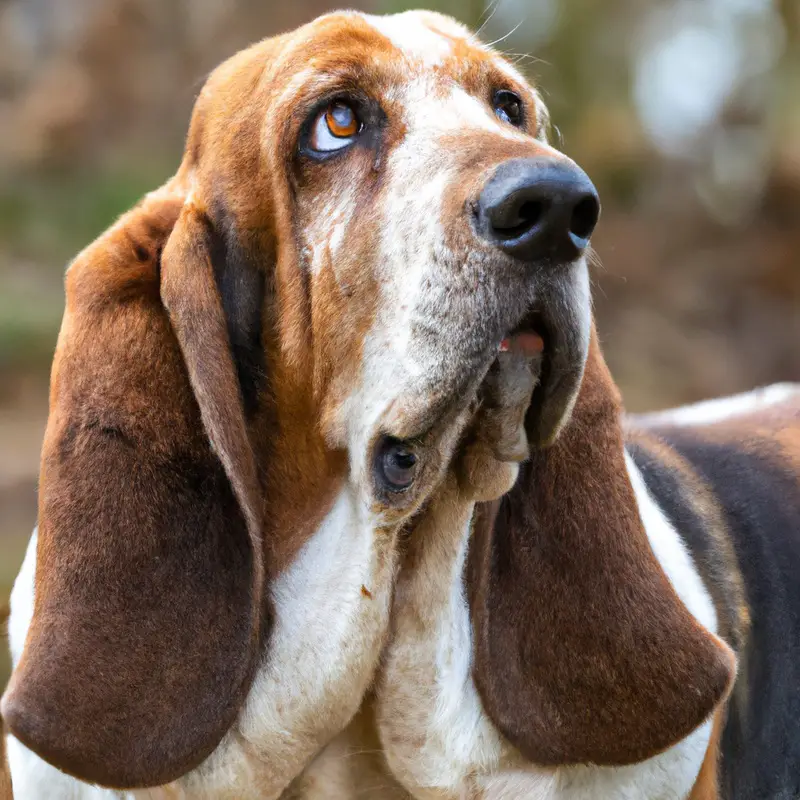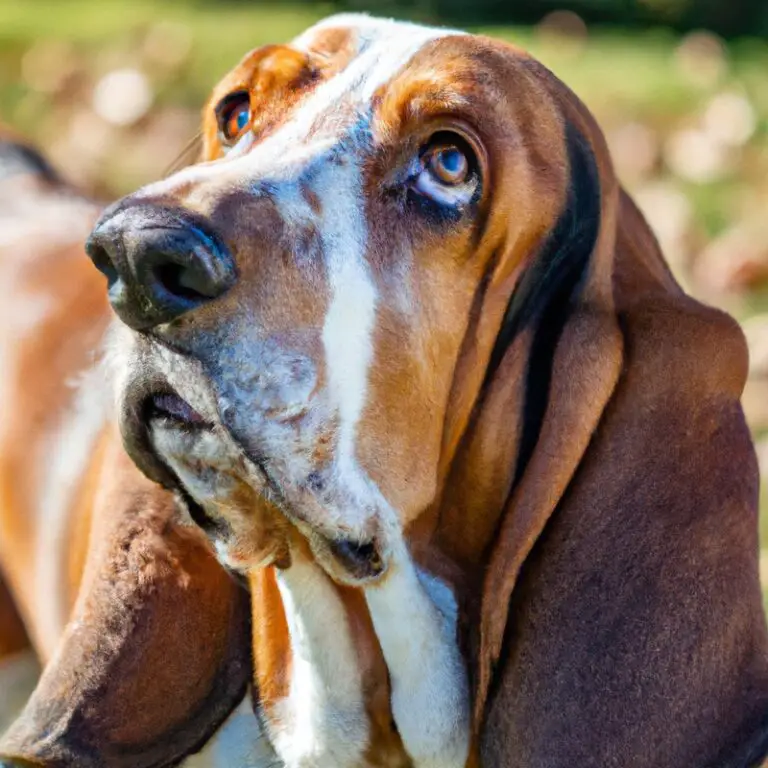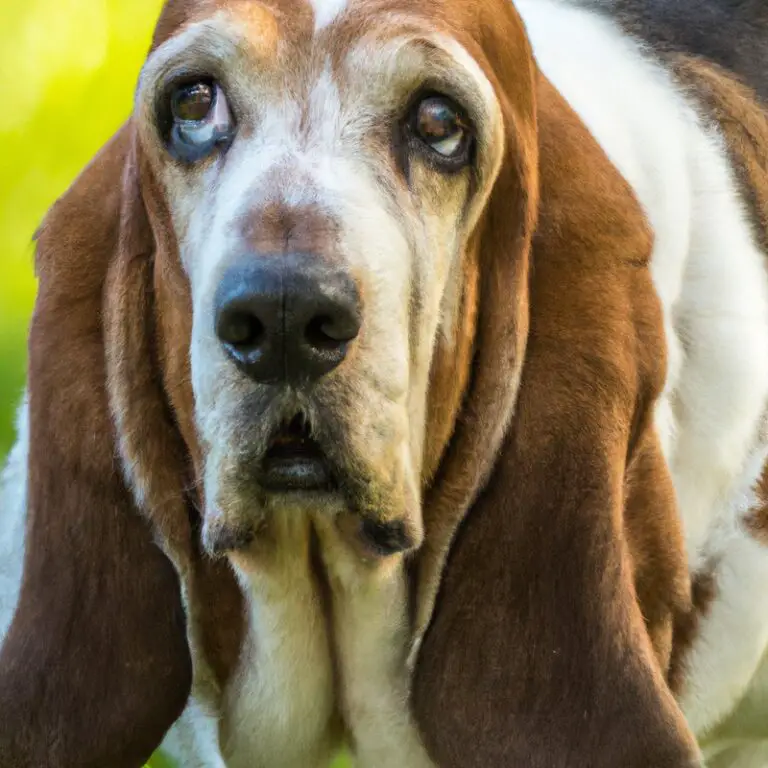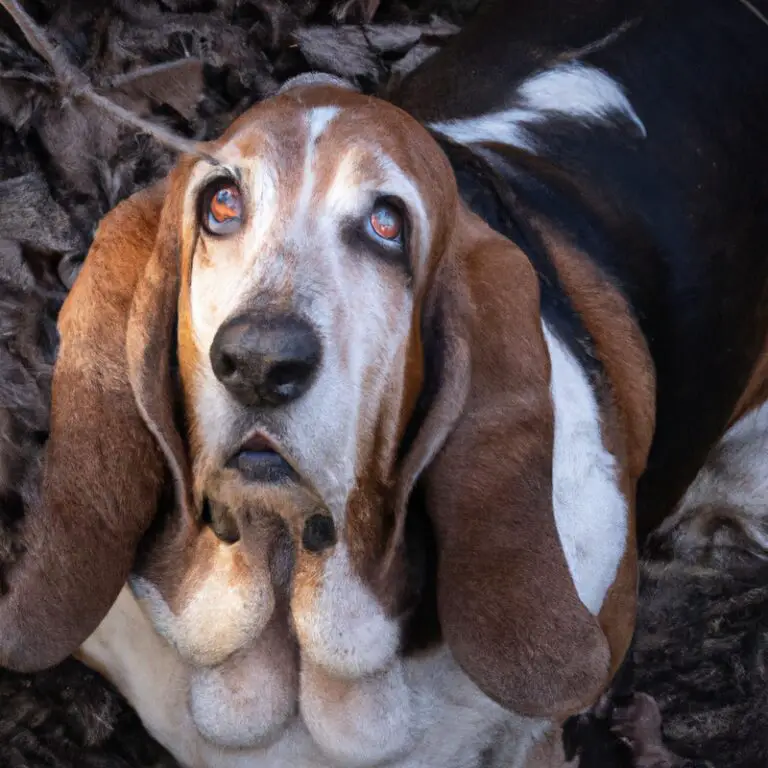How Do Basset Hounds React To Being Left Alone For Extended Periods?
Key Takeaways:
- Basset Hounds can experience separation anxiety when left alone for long durations.
- They may exhibit destructive behaviors when feeling lonely or anxious.
- Providing mental stimulation and a consistent routine can help alleviate separation anxiety in Basset Hounds.
- Seeking professional help may be necessary if the dog’s anxiety persists or worsens.
Imagine coming home after a long day at work, only to be greeted by a sad, droopy-eyed Basset Hound desperately craving your attention.
Sound familiar?
Well, you’re not alone.
Basset Hounds are known for their affectionate and loyal nature, but how do they really feel when left alone for extended periods?
As someone who has personally experienced the guilt and worry of leaving my Basset Hound behind, I understand the importance of unraveling their reaction.
In this article, we’ll take a closer look at their natural instincts, personality traits, and emotional sensitivity to understand how prolonged solitude can affect our beloved Basset Hounds.
So, let’s dive in and navigate through their world of emotions together, shall we?
| Positive Reaction | Negative Reaction | |
| Basset Hounds | May experience separation anxiety | May become destructive or develop behavioral problems |
Understanding Basset Hound’s Nature and Temperament
Basset Hound’s Natural Instincts and Characteristics
Basset Hounds have some distinctive natural instincts and characteristics.
- They were bred for hunting, so they have a strong sense of smell and love to follow scents.
- Bassets are known for their droopy ears and sad expressions, which make them quite endearing.
- They have a laid-back and easygoing personality, which makes them excellent family pets.
- Bassets can be stubborn at times, so training requires patience and consistency.
- They are prone to obesity, so proper diet and exercise are vital for their health.
- Basset Hounds are generally friendly and get along well with people and other pets.

Basset Hound’s Personality Traits
Basset Hounds have several unique personality traits that contribute to their charm and distinct character.
They are known for their gentle and friendly nature, making them excellent family pets.
Bassets also tend to be patient and easygoing, making them great companions for children.
Their strong sense of smell and tracking instincts can lead to stubbornness at times, but with proper training and socialization, they can be obedient and well-behaved.
Overall, Basset Hounds are loyal, affectionate, and a pleasure to have around.
Basset Hound’s Emotional Sensitivity
Basset Hounds are known for their emotional sensitivity. They are highly attuned to their surroundings and the emotions of their owners.
They can easily pick up on stress, anxiety, and other negative emotions, which can affect their own emotional well-being.
It’s important to create a loving and calm environment for your Basset Hound to thrive. Regular exercise, mental stimulation, and positive reinforcement training can help build their resilience and emotional stability.
Remember to provide them with plenty of affection and attention to keep their spirits high.
The Effects of Being Left Alone on Basset Hounds
Separation Anxiety in Basset Hounds
Separation anxiety is a common issue among Basset Hounds when left alone. These dogs form strong bonds with their owners and can become anxious when separated.
Signs of separation anxiety may include excessive barking, destructive behavior, drooling, or attempts to escape.
To address separation anxiety, it is important to gradually introduce alone time, provide mental and physical stimulation, create a safe environment, and seek professional help if needed. Understanding and addressing separation anxiety can greatly improve the well-being of Basset Hounds when left alone.
Signs of Distress and Loneliness
When a Basset Hound feels distressed or lonely, there are several signs to look out for. They may exhibit excessive barking or howling, destructive behavior like chewing on furniture, or having accidents indoors.
Other signs include pacing, restlessness, loss of appetite, or even attempting to escape.
Additionally, a Basset Hound may become clingy or constantly seek attention when feeling distressed or lonely. Observing these signs can help you identify when your Basset Hound isn’t coping well with being left alone for extended periods.
Behavioral Issues Arising from Isolation
Behavioral issues can arise in Basset Hounds when they are left alone for extended periods.
These issues may include separation anxiety, excessive barking, destructive behavior, and house soiling.
Bassets are social dogs and thrive on human companionship, so being isolated can cause stress and frustration.
It is important to address these issues promptly to ensure the well-being of your Basset.
Seeking professional help, providing mental and physical stimulation, and creating a safe and comfortable environment are essential in alleviating these behavioral problems.

Tips to Help Basset Hounds When Left Alone
Slowly Introducing Alone Time
Slowly introducing alone time is essential for helping your Basset Hound adjust to being left alone.
Start by gradually increasing the time you spend away from them.
Begin with short periods and gradually lengthen them over time.
Provide distractions like toys, puzzles, or treat dispensers to keep them occupied while you’re gone.
Make sure to create a safe and comfortable environment with their bed, toys, and access to water.
Consulting with a professional trainer or behaviorist can also provide valuable guidance during this process.

Providing Mental and Physical Stimulation
Basset Hounds, like any other dog, need mental and physical stimulation to help keep them happy and balanced.
Here are some ways you can provide this stimulation:
- Daily exercise: Taking your Basset Hound for regular walks or play sessions will help burn off excess energy and keep them physically fit.
- Interactive toys: Provide your dog with toys that require mental engagement, such as puzzle toys or treat dispensers. This will keep their minds active and prevent boredom.
- Training sessions: Basset Hounds are intelligent dogs and enjoy learning new things. Teach them tricks or engage in obedience training to keep their minds stimulated.
- Socialization: Expose your Basset Hound to different environments, people, and animals to help them develop social skills and prevent them from becoming anxious or fearful.
- Rotate toys: Keep a variety of toys available for your Basset Hound and switch them out regularly. This will prevent them from becoming bored with the same toys.
By engaging in these activities, you’ll keep your Basset Hound mentally and physically stimulated, which will help prevent behavioral issues and promote their overall well-being.
Creating a Safe and Comfortable Environment
To create a safe and comfortable environment for your Basset Hound when they are left alone, there are a few key things to keep in mind.
Firstly, make sure the area they will be in is secure and free from any potential hazards.
This includes removing any toxic plants or substances that may be within reach.
Secondly, provide them with a cozy and comfortable space.
A soft bed or blanket that smells like you can help them feel more at ease.
Lastly, leave them with some interactive toys or puzzle feeders to keep their minds occupied while you are away.
Seeking Professional Help
If you’re struggling to address your Basset Hound’s separation anxiety or behavioral issues on your own, seeking professional help can be a game-changer.
A qualified dog trainer or animal behaviorist can provide expert guidance tailored to your dog’s specific needs.
They can help you understand the root causes of your dog’s distress and develop a personalized training plan to address the issues.
Professional assistance can give you the tools and strategies necessary to create a healthier and happier environment for your Basset Hound.
Remember, don’t hesitate to reach out for support when needed.
Alternative Solutions for Extended Periods of Absence
Doggie Daycare or Pet-Sitters
If you need someone to look after your Basset Hound while you’re away, you have two main options: doggie daycare or a pet-sitter.
Doggie daycares are facilities where your dog can spend the day playing and socializing with other dogs.
They often provide a safe and supervised environment with trained staff.
On the other hand, pet-sitters are individuals who come to your home and take care of your Basset Hound in their familiar surroundings.
Both options have their advantages and it depends on your dog’s personality and preferences.
Some Basset Hounds may enjoy the company of other dogs in daycare, while others may prefer the one-on-one attention of a pet-sitter.
Think about what would make your Basset Hound feel most comfortable and choose the option that suits them best.
Having a Companion Animal
Having a companion animal can greatly benefit a Basset Hound when left alone for extended periods. A companion animal, such as another dog or a cat, can provide companionship, playtime, and a sense of security.
They can keep each other company and engage in social interactions, reducing feelings of loneliness and distress.
It’s important to introduce the companion animal properly and ensure compatibility between the two pets. This way, they can form a bond and support each other during times of solitude.
Interactive Toys and Treat Dispensers
Interactive toys and treat dispensers can be great solutions to keep your Basset Hound entertained and mentally stimulated when left alone.
These toys are designed to challenge and engage your dog’s natural instincts.
They require problem-solving skills and provide rewards, such as treats or puzzle-solving satisfaction.
Interactive toys and treat dispensers can help alleviate boredom and anxiety, keeping your Basset Hound occupied and happy during extended periods of absence.
Just make sure to choose toys that are durable and suitable for your dog’s size and chewing habits.
Final Verdict
Based on my expertise in Basset Hounds and their behavior, it is clear that these dogs do not handle being left alone for extended periods well. Due to their pack-oriented nature and emotional sensitivity, they can experience separation anxiety and exhibit behavioral issues when left alone.
However, there are practical steps that can be taken to help ease their distress, such as slowly introducing alone time, providing mental and physical stimulation, and creating a safe environment.
Additionally, alternative solutions like doggie daycare, having a companion animal, and interactive toys can also be considered. By implementing these strategies, Basset Hound owners can ensure their furry friends feel secure and content when left alone.







